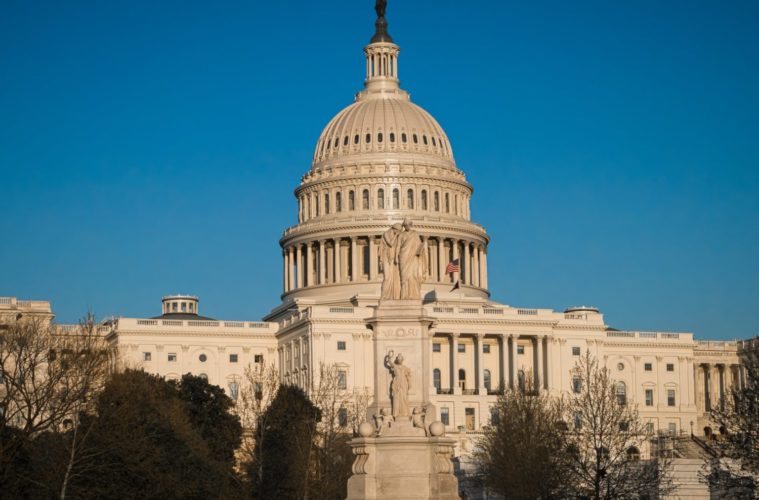Senate Majority Leader Chuck Schumer (D-NY), along with Sens. Cory Booker (D-NJ) and Ron Wyden (D-OR), released draft legislation last week of the most comprehensive federal cannabis reform plan to date.
The bill would decriminalize and deschedule cannabis. It would also provide for reinvestment in people whose lives have been negatively impacted by the war on drugs and provide expungements for certain kinds of cannabis offenses.
The bill’s summary notes the most immediate impacts will be that communities of color will no longer have to fear arrest, denial of public housing or the loss of federal financial aid for higher education for using cannabis in states where it’s legal. Also, cannabis businesses will be treated normally by financial institutions, allowing easier access to bank accounts and loans. The authors also noted medical research won’t be stifled, but that admittedly seemed to already be opening up with the DEA’s wave of recent cultivation approvals after 20 years of requests.
“I am proud to introduce our discussion draft of the Cannabis Administration and Opportunity Act, a legislative proposal aimed at finally putting an end to the federal prohibition of cannabis and addressing the over-criminalization of cannabis in a comprehensive and meaningful way,” said Majority Leader Schumer. “The War on Drugs has too often been a war on people, and particularly people of color. Not only will this legislation remove cannabis from the federal list of controlled substances, but it will also help fix our criminal justice system, ensure restorative justice, protect public health, and implement responsible taxes and regulations.”
Senator Booker went on to speak on the war on drugs’ impact on communities. He saw it firsthand as mayor of Newark, New Jersey.
“For decades, our federal government has waged a War on Drugs that has unfairly impacted low-income communities and communities of color,” said Booker. “While red and blue states across the country continue to legalize marijuana, the federal government continues to lag woefully behind. It is time for Congress to end the federal marijuana prohibition and reinvest in communities most impacted by the failed War on Drugs. I am proud to introduce this landmark piece of legislation with Senator Wyden and Majority Leader Schumer that will finally turn the page on this dark chapter in American history and begin righting these wrongs.”
The National Cannabis Industry Association weighed in on the announcement.
“As Majority Leader Schumer noted today, this is a momentous occasion. This is the first time that the leadership of the upper chamber has championed a bill to end federal cannabis prohibition, and the fact that it is being done in such a thoughtful and proactive manner, engages stakeholders, and includes robust social justice and regulatory language is revolutionary,” said Aaron Smith, NCIA co-founder and CEO. “Given the political environment in the Senate right now, our focus will be to explore ways to potentially improve the bill and gain Republican votes – particularly from those lawmakers representing states where cannabis is legal in some form – while we shore up Democratic support. This draft legislation is a great vehicle to jumpstart these conversations and find common ground across the political spectrum.”
Smith also spoke on Sen. Booker commenting he would oppose any consideration of passing protections for financial institutions that want to provide services to the industry separate from the wider legalization plan. Sen. Booker believes that would only be an incremental measure.
“We absolutely share Sen. Booker’s desire to enact comprehensive reform as soon as possible, but we also recognize – as do the sponsors of this legislation – that the status quo disproportionately hurts marginalized communities and small businesses, and that getting the bipartisan support necessary for passage in the current term is far from certain,” Smith said.
Some fear linking the fate of banking reform to the bill because bank accounts would provide a critical tool for mom-and-pop shops attempting to stay afloat in the industry just as it would be to venture capitalists with even bigger weed dreams. It would impact every level of the industry in a positive way. The counterargument is the communities hit the hardest by the enforcement of cannabis laws never had access to these financial institutions anyways, so push full reform to get them started on the best footing rather than make it even easier for the big dogs to consolidate. The problem is, as Smith will note, if nothing changes, the big dogs can just continue to create their own banking mechanisms while the little guys continue to struggle.
“Closing the door on broadly supported incremental reforms like the SAFE Banking Act while the Senate seeks compromise on farther-reaching bills hurts the possibilities for consensus and ignores the very real needs of small business operators who have repeatedly said that access to banking services and traditional lending is an existential issue,” Smith said. “Big companies already have access to these services, and delaying that same access for small businesses would not further the goal of fostering a more diverse and inclusive industry. These efforts are not mutually exclusive, and history has shown that when it comes to cannabis, every step in the right direction builds momentum for bigger and better reforms at the state and national level.”
Over the rest of the week, we’ll be diving into the Cannabis Administration and Opportunity Act in three separate pieces covering the business side, restorative justice aspects and social equity.
Advertising disclosure: We may receive compensation for some of the links in our stories. Thank you for supporting LA Weekly and our advertisers.

